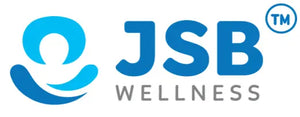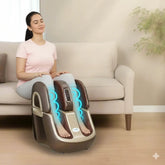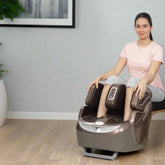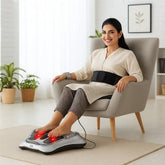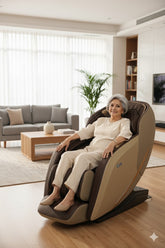The cases for sudden cardiac arrests are rising at a rapid rate and are more than ever. But WHY? Are we getting weaker? Or are there some hidden reasons you should know? Also, can we track the signs of getting sudden cardiac arrests? If yes, how can we prevent it?
In this blog, we will discuss everything.
What is Sudden Cardiac Arrest?

Cardiac arrest refers to a medical condition in which the heart suddenly stops beating. This means the blood suddenly stops flowing to your brain and the vital organs, probably resulting in death. Cardiac arrest is one of the riskiest & critical conditions and needs instant medical attention.
But don’t confuse it with Heart Attack. That happens when blood flow is blocked to the part of the heart and the veins. Sudden Cardiac Arrest causes a dangerous & sudden change in heart’s electrical.
Rhythm. This irregular heartbeat condition is called arrhythmia. A cardiac arrest can collapse you, make you unresponsive, and lose pulse instantly. In such cases, the patient instantly needs quick treatment such as CPR or a shock from a defibrillator.
Recent Rise in Sudden Cardiac Arrest Cases
The cases of cardiac arrest have been occurring more than ever. And its not just the elders anymore. Medical reports show that the whole world is facing a sudden rise in cardiac arrest cases among adults (under 40 years old) and even sometimes, teenagers as well.
This used to be very uncommon but with the rise of cardiac arrest cases, we are more vulnerable than ever.
Here are some of the few reasons doctors suggest for the causes of sudden cardiac arrest in young adults:
- Not much physical activity.
- High stress levels and a competitive lifestyle.
- Poor diet.
- Increase in smoking, alcohol, and unhealthy fats & sugar.
- Genetic predispositions (in some special ethnic groups.)
- The lingering impact of Covid-19 on physical & mental health.
Several countries including India have reported that the heart diseases in adults under 40 have doubled since the pandemic. As per a report, India faces nearly 4.5 Million cases of sudden cardiac deaths annually. 25% of the total deaths in the country is caused by heart diseases and 60% of them occur pre-mature. Among these, 10% of the deaths happen due to Sudden Cardiac Arrest.
Common Causes behind Sudden Cardiac Arrests
How does a sudden cardiac arrest happen? At the roots, the heart suddenly goes through an abnormal rhythm that prevents the normal heart functions. The most common type of this abnormal rhythm is ‘Ventricular Fibrillation’. Here are the common reasons for sudden cardiac arrest:
- Coronary artery disease: When cholesterol or plaque blocks the heart functionalities.
- Heart attack: Scar tissues from a previous heart attack can cause sudden cardiac arrest by interfering with electrical signals.
- Cardiomyopathy: This condition is often genetic. This happens when the patient has thick or enlarged heart muscles.
- Valve disease: There’s a leak or narrowing in heart valves that makes the heart work harder.
- Congenital heart defects: Some people are born with heart abnormalities that increase risk.
- Long QT syndrome and similar conditions: People inherit these conditions from their ancestors. These conditions destabilise the heart’s electrical system.
- Other causes: There are several other reasons for sudden cardiac arrest such as severe asthma attacks, allergic reactions, drug interactions, breathing problems, electrocution, or even a hard blow to the chest (like in sports accidents).
Risk Factors You Shouldn’t Ignore
We understand that no one likes to think about such critical conditions. But there’s always a possibility of unfortunate events. So even if you’re completely healthy today, you must be aware of the risk factors that can cause sudden cardiac arrest. Some of the most common risk factors are:
- Family history of heart disease or sudden cardiac arrest
- Existing heart conditions
- High blood pressure or high cholesterol
- Diabete
- Obesity or being overweight
- Excessive smoking or alcohol consumption
- Highly stressful lifestyle
- Poor diet
- Sleep disorders
Older age used to be a common issue for SCA but after the Covid-19 pandemic, the whole world is witnessing the rise of sudden cardiac arrest cases among adults and even teenagers.
Warning Signs before a Sudden Cardiac Arrest
As the name suggests, Sudden Cardiac Arrest happens suddenly with no warning at all. However, in some cases, you may notice some signs just before it happens. Here they are:
- Sudden fainting or collapse
- No pulse or no breathing
- Losing consciousness
- Feeling weakness, dizziness, or chest discomfort
- Signs of Palpitations
- Breathing issues like shortness of breath
If you see any of these signs, immediately call a medical service. If someone collapses suddenly and is unresponsive, call the emergency number right away or give them CPR. In the cases of sudden cardiac arrests, every second counts!
How to Prevent Cardiac Arrest?
Sudden Cardiac Arrests are surely a complex ailment and need special attention instantly. No one can actually predict it, but we can prepare ourselves or try to prevent it from happening. Now, the question is HOW?
Here are some of the ways you can do so:
1. Get Regular Checkups
Visit your doctor even if you feel everything is all fine. It’s not your job to treat a disease, it’s to prevent them from happening. This is especially essential if you have a history of heart diseases. Early detection always saves more lives than treatment.
2. Stay Active
Make any physical activity an essential part of your everyday lifestyle. It can be anything- walking, running, cycling, swimming, dancing etc. Physical activities improve your heart health and blood flow.
3. Eat Heart-Friendly Foods
Maintain a proper diet plan for your life. Include more healthy fats, vegetables, fruits, whole grains, and lean protein. Avoid excessive processed food, sugar, and salt.
4. Support Healthy Blood Circulation
You need to adopt healthy habits for a good life. Manage stress, control blood pressure, and sleep well. You can also use blood circulation machines in case you don't have time to exercise or any physical activity.
5. Avoid Harmful Habits
Don’t smoke, eat healthy, and limit alcohol. Bad food and habits injure your heart and blood vessels.
6. Track Your Health Numbers
Your body is destined to slow down or become fragile over time. It’s your job to track your health numbers. For example- use BP monitors to measure blood pressure, blood sugar levels, and visit your doctor regularly even if you feel fine.
Role of Blood Circulation Machines and Massagers
With the rise of a sedentary lifestyle, people are using blood circulation machines and leg massagers to stimulate blood flow. This is especially for white collar employees who sit for long hours and live mostly an inactive lifestyle. These devices offer a gentle massage and promote blood circulation in the legs. This makes people feel better and improves muscle health.
If you're someone extremely busy in their everyday work-life, you should try blood circulation machines that relax your muscles, and improve your blood flow in just a few minutes.
However, these BCM machines are not an alternative to healthy lifestyle, exercises, or medical treatment. These are just simple machines to help you get instant support for your inactive days. For people with diabetes or blood circulation issues, these devices might offer relief but you should be in touch with your doctor first.
In case you’re searching for one, you should explore the renowned, reliable, and modern-tech blood circulation machines from JSB Healthcare, offering quick relief from whole day inactiveness.
Conclusion:
Sudden cardiac arrest cases on rise but WHY? There are several common reasons, such as less physical activity, poor diet, and stress; however, there are some genetic conditions as well. Surely, there are no long-term warning signs, but you can improve your lifestyle to prevent it from ever happening.
In this blog, we have discussed the reasons for sudden cardiac arrest and the ways to prevent it. Make sure you adopt all these things and live a healthy life. Also buy a reliable BP monitor at home for checking blood pressure and a BCM machine for some instant relief. Stay informed, act now and you can save more lives than you know.
